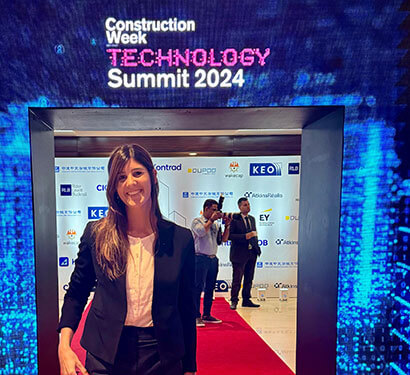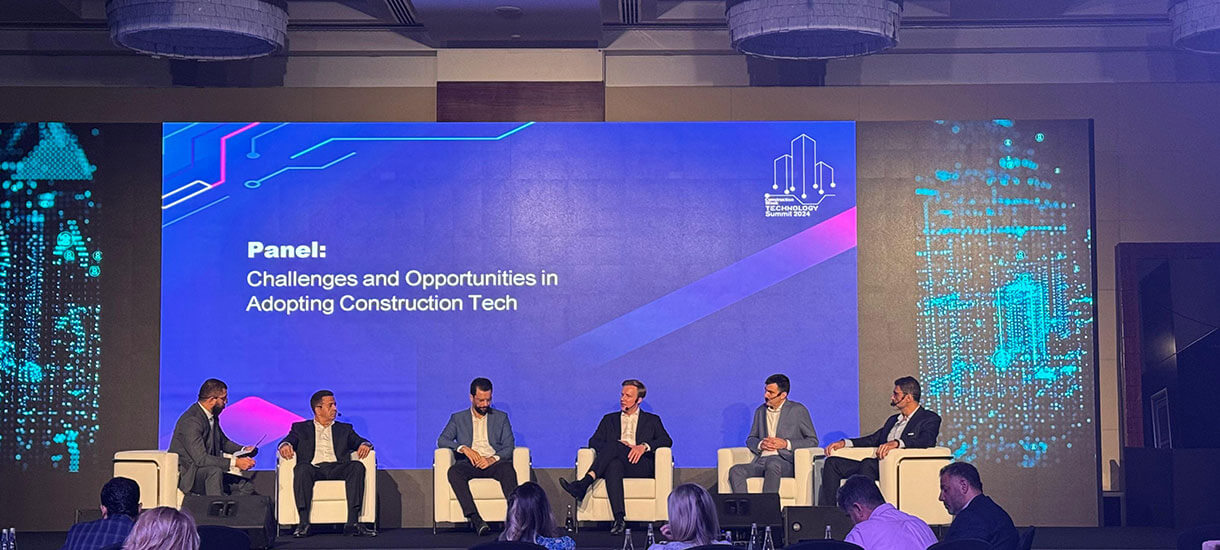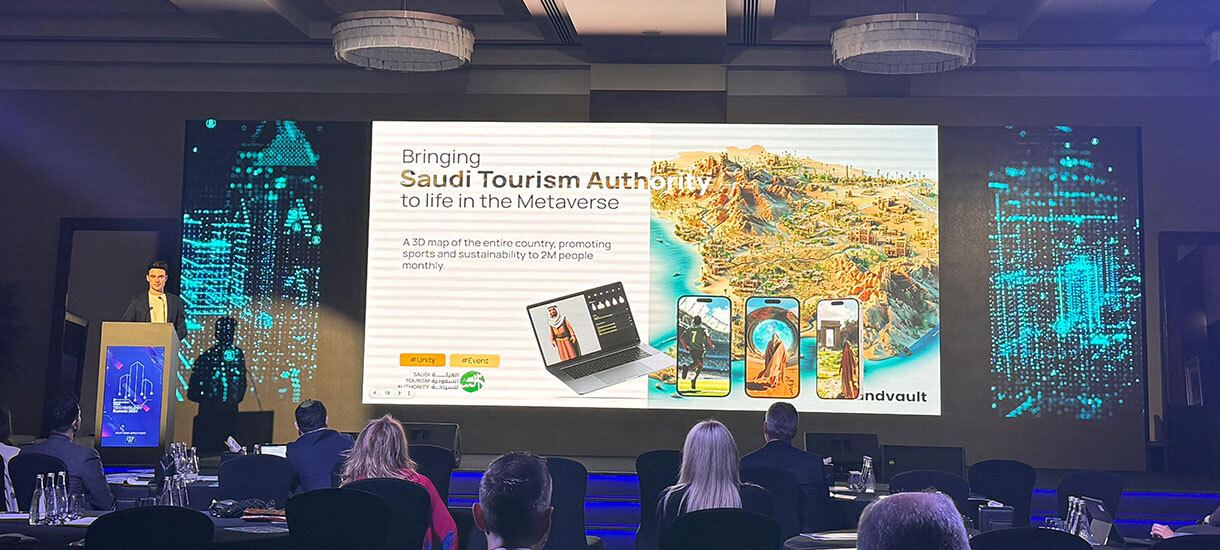The Construction Week Technology Summit in Dubai served as a convergence point for visionaries and innovators, all dedicated to reshaping the construction industry, advancing sustainability, and transforming project execution in the region. Delfina Casado, Architectural Project Delivery Director, represented us at the event and shared her takeaways.

The conference was structured around four key thematic pillars led by keynote speakers like Sameer Daoud, Managing Director - Infrastructure at KEO International Consultants; Alyaa Al Wahab, Head of Project Management - Rider Levett Bucknall; Madeleine Skillen, Regional Marketing Manager - Procore Technologies, and Samuel Huber, CEO, Landvault. Here is our summary of the agenda and our four picks for this event.
A program with leading speakers and hot topics for the region
"Construction Technology Landscape: Trends and Outlook" was the opening topic of the event. Speakers like Eliyahu Rapaport – CEO of Global Construction Tech, and Naveen Raj, Principal Consultant of Alpin Limited, explored the future of construction in the UAE, innovations, and international best practices in Building Information Modeling (BIM).
The day continued with "Advancements in Construction Tech", the central theme that covered BIM and its Impact on Project Efficiency and how it Improves Project Management and cost control, streamlining the whole project lifecycle alongside virtual spaces, which provided incentives to take advantage of the metaverse for construction and innovative real estate development.
Mansour Faried, Chief Engineer, China State Construction, was the speaker of the third part of the agenda, giving a keynote about green building and sustainability.
The program closed with two keynotes, led by Zulema Sanchis, Director at Accuracy, and Alyaa Al Wahab, Head of Project Management at Rider Levett Bucknall, followed by a panel where the main discussion focused on the challenges and opportunities in adopting construction tech, with Sameer Daoud (KEO) as moderator.

Four takeaways you need to know
The importance of BIM in the different stages of the project.
The discussions revealed a critical need to bridge the gap between pre-construction technology use and effective on-site implementation. It became evident that BIM methodology and applied technology significantly impacted that transition. Both factors substantially impact on management, profitability, and time savings. Experts pointed out that its implementation in all regional construction projects is critical.
How process drives tech adoption.
Zulema Sanchis, director of Accuracy, emphasized the importance of understanding the problem first and then targeting the most suitable strategy for a project. In her talk, "Effective Strategies for Implementing Construction Technology," she highlighted how processes are crucial to comprehending the subsequent challenges following the delivery of architectural production.
Unlocking data's potential.
Another takeaway from this technology summit was the importance of data collection and how AI-powered dashboards can automate processes and leave professionals in charge of making strategic decisions, ultimately translating into time and money on the job site.
During the talks, the widespread use of data management software was a common thread, pointing to a promising application of technological advances to strategic information use. The construction industry can embrace a more efficient and innovative future by adopting a comprehensive strategy and actively investing in the right tools and training.
Investment strategies, regulatory challenges, and opportunities.
The summit tackled legal hurdles, investment strategies, and ROI analysis. The last panel, moderated by Sameer Daoud, offered a clear roadmap for companies to navigate the complexities of adopting new technologies.
In addition, the agenda covered how technological advances create new roles tailored to the different stages of the process. Therefore, choosing the best strategy to address the problem, followed by selecting the appropriate technology tools, is critical to understanding our objective, why and for what reason the team requires them, and how they add value to the project.

Overall, Construction Week catalyzed the industry's transition to a technology-driven future. The conference emphasized the need for a strategic shift from the critical role of BIM to the need for process-driven technology adoption. Construction businesses can usher in a new era of efficiency, sustainability, and creativity by prioritizing data collection, staff training, and an openness to new tools. The groundwork has been laid in Dubai; now it's time to build.